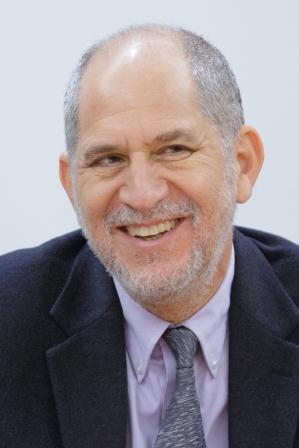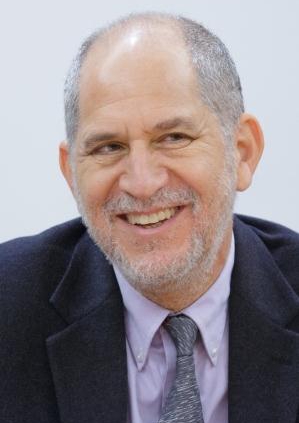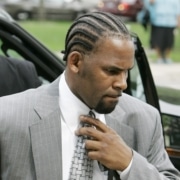Featured Expert of the Month: Max Bazerman
Interview with Professor and Author Max Bazerman 
What is the main research themes for which you are known?
I believe that I am best known to different groups of scholars for different chunks of work.
Perhaps the research of mine that other scholars first noticed was my integration of the field of behavioral decision research (aka behavioral economics, behavioral insights, etc.) for a managerial audience. Many leading scholars had their first exposure to the field by reading my book Judgment in Managerial Decision Making (now in its 8th edition, with Don Moore). I published the first edition in 1986, when business schools were not yet paying attention to the revolution created by the insights of Kahneman and Tversky.
I believe that my earliest empirical work that received broader attention was a series of studies connecting behavioral decision research to the problem of how to negotiate more effectively. Combining behavioral decision research with the more prescriptive approach of Howard Raiffa provided a powerful lens that has influenced how negotiations is taught in professional schools over the last three decades.
I hope that my most recent work on bounded ethicality will receive similar attention. Dolly Chugh, Ann Tenbrunsel, and others have worked with me to highlight the systematic and predictable ways in which good people do bad things without being aware that they are doing so. I am specifically intrigued by the surprising degree to which people can fail to notice the unethical actions around them.
Finally, I am part of a large group of scholars at Harvard who are interested in the movement toward doing field experiments for the public good. I co-direct (with Iris Bohnet) Harvard’s Behavioral Insights Group, and in collaboration with the UK Behavioral Insights Team, we are working to connect scholars with governments to help use behavioral insights to create wiser and more ethical decisions.
How does your work help organizations that want to improve themselves as ethical systems?
I want leaders to notice the unethical actions that are occurring in their organization. I also want to encourage leaders to create organizational systems that will dramatically reduce unethical action in their organizations. This is a large part of the leadership challenge that I lay out in The Power of Noticing.
If could only highlight one paper or research finding that relates to Ethical Systems, which one would it be and why?
Shu, L., Mazar, N., Gino, F., Ariely, D, and Bazerman, M. Signing at the beginning makes ethics salient and decreases dishonest self-reports in comparison to signing at the end. Proceedings of the National Academy of Sciences, 2012, 109: 38, 15197-15200.
I chose this article because it highlights critical issues related to improving ethical decisions in real organizations. From a conceptual standpoint, this paper is also the simplest one that I have ever written. The idea is that by having someone sign their name at the top of a form that asks them to provide truthful information rather than at the bottom, you can dramatically reduce their unethical behavior. This paper has prompted trials in a number of nations in their efforts to improve the ethicality of taxpayers. I look forward to seeing the results.
I think this paper is interesting because it can easily be criticized for being conceptually trivial, and it is. Yet, if the effect holds up (and I am betting on it!), it raises a striking question: How did we make the mistake for so many decades of putting signature lines at the bottom of forms?
Note: This paper was retracted by its authors after an investigation by Data Colada into the underlying data.
Tell us about one of your current or future research projects.
I find that many of my future projects are rooted in my past projects, even as I change domains. I have long contributed to a literature on separate versus joint preference reversals. These effects document contexts where people place a higher value on one option than another when looking at them individually, but reverse their preference when considering two or more options at the same time. (The original paper on this topic was Bazerman, Loewenstein, & White, 1992.) Generally, our more emotive systems are comparatively more powerful when we are considering one option, while our more deliberative systems are stronger when we compare two or more options.
I find my work on bounded ethicality brings me back to the joint/separate idea on a regular basis. For example, I have a working paper (Bohnet, van Geen, and Bazerman) that shows that people are far more likely to discriminate based on gender when considering job candidates separately than when comparing multiple candidates. We believe that such findings are critically important to organizations that want to be more inclusive and fair. Relatedly, Netta Barak-Corren, Chia-Jung Tsay, Fiery Cushman, and I have a working paper that shows that separate decisions lead to more deontological thought, while joint decision making moves people toward utilitarian thinking.
Featured videos:
- Professor Bazerman on bounded ethicality at the European Conference Cologne 2012
- Professor Bazerman on nudging in government and business at Behavioral Exchange 2014
Featured popular article:
- Becoming a First-Class Noticer. Harvard Business Review, July-August 2014






